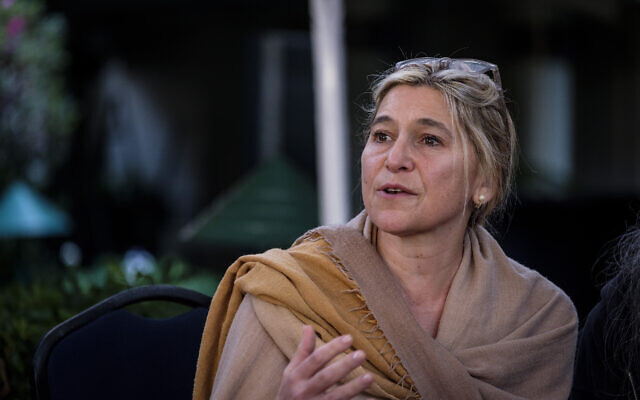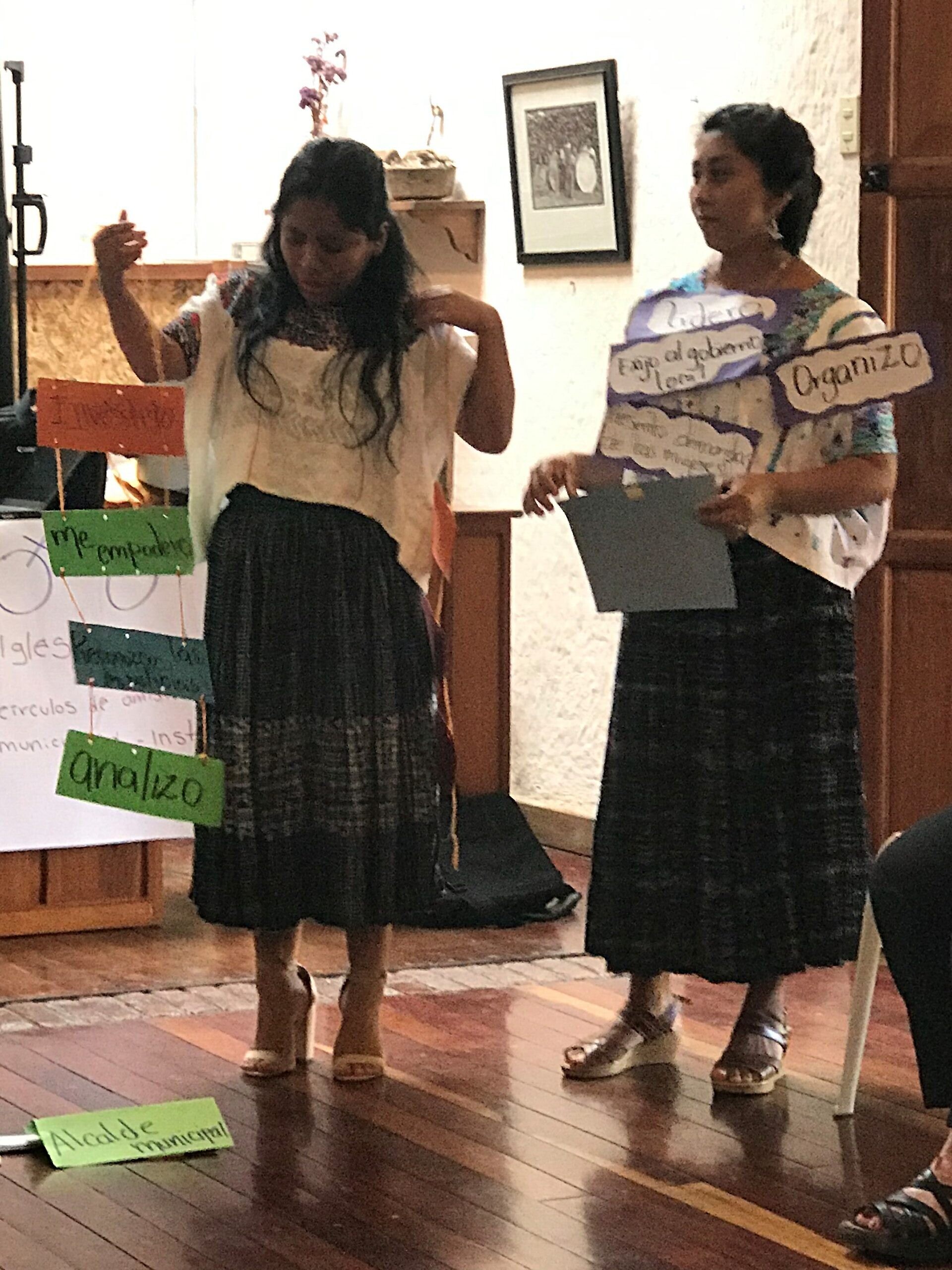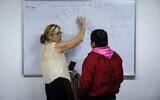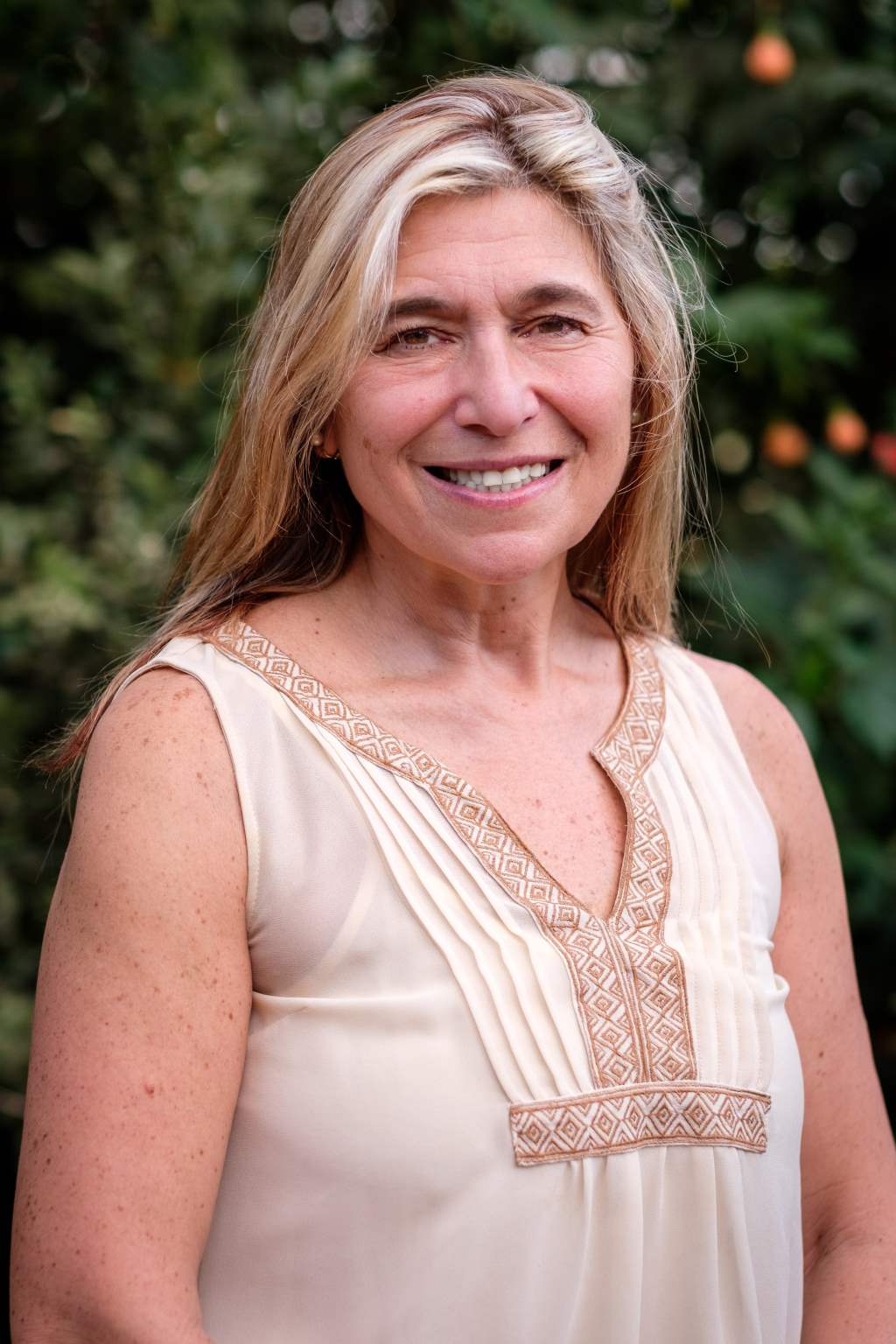Rabbi Bortz Reflects on Guatemala
Rabbi Analia Bortz of Congregation Or Hadash is among 14 influential Jewish leaders who traveled through Guatemala for a week to learn about and advocate for human rights.

Rabbi Analia Bortz of Congregation Or Hadash is among 14 influential Jewish leaders who traveled through Guatemala for a week as part of the prestigious Global Justice Fellowship run by American Jewish World Service, an organization supporting human rights and efforts to fight poverty in developing countries.
Bortz returned to the U.S. last week after meeting leaders of nonprofit groups working to advance human rights in Guatemala, one of the Central American countries residents are fleeing to seek asylum in the United States.

As part of the fellowship, she will discuss her experience with community members and reflect on Guatemala’s human rights history before heading to Washington, D.C., in March to address her experience with members of Congress and other officials.
The fellows arrived as Guatemala faced widespread condemnation for clamping down on the human rights of indigenous people and rural farmers.
The fellows spent a week in the country meeting with advocates in favor of legal protections for human rights activists who face violence; forensic anthropologists working to identify remains from the decades of internal armed conflict; a council of indigenous elders; and an artists’ collective that uses street performance to reintegrate indigenous cultures into public spaces and help communities heal from decades of trauma.
The clergy learned from local human rights advocates about working to improve life in Guatemala and how American Jews and others can support this effort.
The fellows, who were joined on the trip by AJWS Global Ambassador Ruth Messinger, also met with top leadership at the U.S. Embassy.
In addition to traveling to Guatemala, each participant in AJWS’s Global Justice Fellowship engages in six months of human rights education and action, including training with AJWS staff in the United States.
As Guatemala’s new president negotiates the Trump administration’s demand to accept asylum seekers who are being deported to Guatemala, the fellows will play a key role in educating the Jewish community and the public more broadly about the importance of U.S. leadership on the global stage in standing up for human rights and ending poverty.

Years after its internal armed conflict concluded, Guatemala still grapples with tensions over land, ethnicity and economic inequality. Indigenous communities make up over half of the country, yet they have little power in government or in shaping decisions that affect their lives.
“These influential Jewish leaders are witnesses to the fact that human rights in Guatemala are under siege, in some cases forcing people to make the arduous journey to seek a new life in the U.S.,” said Robert Bank, president and CEO of AJWS. “Our fellows share what they learn when they go into their communities and to the halls of Congress. Together, the fellows are issuing a powerful call to Americans to support human rights and end poverty in Guatemala and the rest of the developing world.”
Of her trip, Bortz wrote:

Life presents us with transformative and meaningful experiences that shape who we truly are and craft the journey and purpose for our existence.
I stared at the natural beauty of this country from my window seat 33,000 feet above. Mountains and lakes adorn God’s blessings onto this land but I did not know that those mountains and lakes, farms and villages are impregnated with the blood and bones of the excruciating pain of genocide, rapes, dispossessed Mayan culture. I did not know that until I met, face to face, the people who claim their rights.
My week in Guatemala with the American Jewish World Service refocused the purpose of leadership as a rabbi. During my participation as a Global Justice Fellow, I was blessed to meet men and women who struggle with their everyday needs, who carry with them moral courage, who speak up in times of adversity and claim justice and respect for their human rights and civil rights. Women and men who do not remain silent. Men, women, elderly, children that through resilience create ways to honor their memories and plan for a better future. The Mayan-Guatemalan people are present in this land, they have a voice and their cry became my cry.
What was Jewish about this trip? EVERYTHING. EVERYTHING. And let me repeat it again EVERYTHING.
“Do not stand idly by while your neighbor’s blood is shed” (Leviticus 19:16).
The prophets Isaiah, Jeremiah, Amos and Micah have accompanied us through this journey, whispering the words of justice, commitment, humanity, resilience and strength to fight for what is right when we look at the eyes of our fellow human beings made in God’s image.
Compiled by AJT Staff



comments